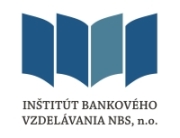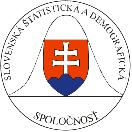Elections
As elections come closer, politicians always are flooding voters with their supposedly bright ideas about how things in the country should work. However, once elected, they usually come down to earth, realizing that their ideas can not be carried out. One can not increase spending, lower taxes and cut the public finance deficit simultaneously. Slovakia, which holds the elections on Sept. 20 – 21, is no exception. The weakest point of political parties‘ economic programs is their financial feasibility: many of them call for higher spending, while at the same time promising sharp tax cuts and lower fiscal deficit. To achieve that, savings to the tune of tens of billion SKK would be needed. So far, politicians have failed to say how to do so, as their proposed spending cuts and reforms would save a tiny portion of the amount needed. This issue of PROFIT includes a survey of Slovak political parties‘ programs, with an emphasis on their suggested economic policies.
Economic Policy
Slovaks consider the high unemployment rate to be the most serious economic problem in the country. In their pre-election programs, political parties write a lot about how to improve the dismal situation. However, Slovakia’s membership in international organizations such as the Organization for Economic Cooperation and Development and the World Trade Organization – not to mention the hoped-for accession to the European Union – significantly limits the room for policy decisions. Many pro-employment measures floated by politicians would mean violating the rules the country has promised the above-mentioned organizations to follow. From a longer-term perspective, taking such measures would constraint the country’s economic growth, and that is the fact the future government resulting from the September elections has to keep in mind, regardless of what parties will form the ruling coalition.
Industry
With a few exceptions, only companies with foreign capital participation have undergone the process of restructuring, which many hoped would be the remedy for the Slovak industry. A plenty of local firms still struggle to survive as they remain undercapitalized, and subsidies from the state are often the only way of keeping them afloat. Their managers can still only dream about the true restructuring.
The government pledged to increase the share of higher-added-value production on the overall output. Last year, such ratio totaled 36.7 percent for the economy as a whole, while in the industry it was lower at 24 percent.
To be honest, one has to mention that the labor productivity has increased since the beginning of the government’s term in late 1998. However, the improvement was mostly conceived in Slovak units of foreign companies, which managed to raise productivity, even as they were hiring new staff. In many locally-owned companies, productivity rose due to massive lay-offs of redundant workers rather than increased efficiency.
The government hoped the development of the so-called industrial parks it promoted would help create environment for structural changes in the Slovak industry. However, the hoped-for restructuring revolution has not happened yet due to long delays in passing the necessary legislation.
Public Finance
None of the political parties running for the elections dared to omit the consolidation of public finances as one of the primary economic goals. Four years ago, the talk was the same, as politicians pledged to balance the budget by the end of this year. Despite the government’s failure to cut the budget deficit, a lot of fiscal bravery can be found in election campaign speeches. They believe that by sharply trimming expenditures the budget gap can also be cut significantly.
SMER, the new party, which has recently taken a lead in the pre-election polls, wants to spend less on the state bureaucracy, cut costs of the public procurement and reduce – they claim unreasonably high – fees paid to the state’s legal and financial advisors. It even seems the long-delayed pension reform could begin soon. Also the planned launch of the Treasury system – the idea supported by all the parties – should help manage state funds more effectively.
Parties on the right would like to see the fiscal policy tightened. SDKÚ, the party of Prime Minister Mikuláš Dzurinda, says the state must not spend more than what is earmarked in the budget. The party wants to push through a constitutional law on fiscal discipline, which would forbid passing legislation calling for spending not covered in the existing budget. SMER also suggests to tighten supervision of how the taxpayers‘ money is spent, and higher penalties for the wrongdoers. Proposals by the conservative OKS party go even further: they want the constitution to include the obligation to maintain the budget in balance, with the final aim to reduce the government’s debt altogether.
Lower spending creates room for cuts in income and payroll taxes, or so the theory goes. No wonder, all the parties promise to do so. The question is how deep the cuts could be given the state of the public finances.
The ultimate aim of the fiscal consolidation is to reduce the amount of state debt. All the parties, with the exception of HZD and SDL, acknowledge reducing the ballooning debt mountain should be the priority. The two mentioned parties make no mention about fiscal policy in their pre-election manifestos. But their left-leaning policies of full employment and state interventions in the economy would, if put into praxis, clearly cause the debt to continue growing.
Housing
Housing problems represent a popular weapon in any pre-election fight. The truth is that even the affordability of such basic human need as housing at the end depends on politics. All the parties claim that more flats have to be built, while at the same time they do not hesitate to pass legislation that effectively constraints the new development. The time has shown that many of the laws related to housing have to be amended.
At least, the State Housing Development Fund, which helps provide cheap financing for lower-income families seeking to buy their own house or flat, was not scrapped. The government even managed to find more money for the state housing support: the Fund will borrow 1.15 billion SKK from commercial banks. The money will be used to finance 126 municipal housing projects submitted before the end of July. Still, the future fate of the Fund is unclear. Most of the parties want to keep it at least until the real estate market in the country reaches its equilibrium.
The coalition claims its housing goals were four-fifths met. The opposition led by HZDS puts the government’s success ratio at 50 percent.
Either way, it is clear Slovakia lacks enough housing. The number of flats per thousand people is slightly above 300, much lower the Europe’s standard of between 400 and 490.






